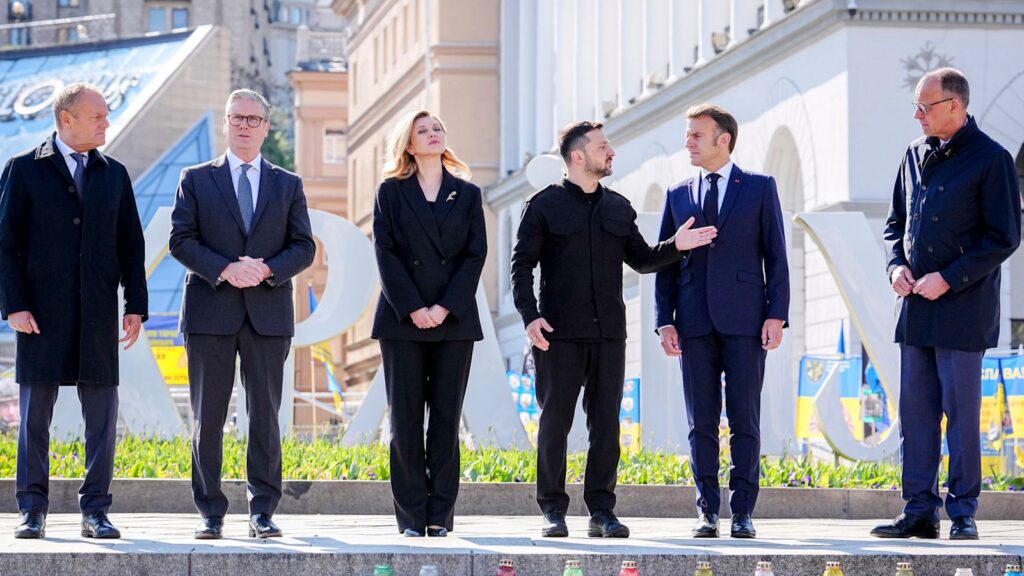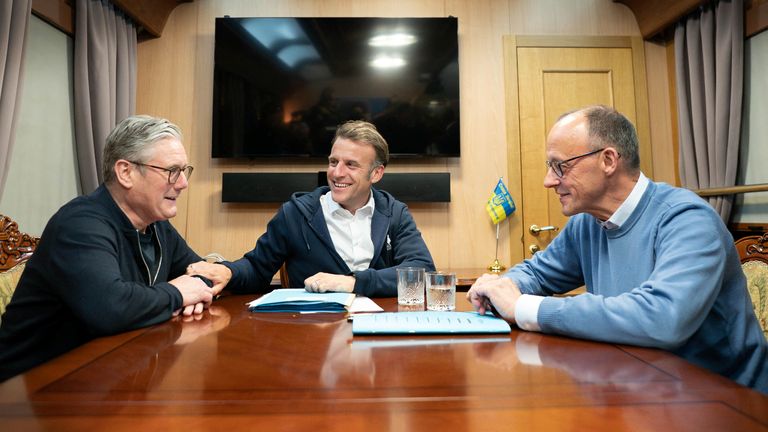Ask Ukrainians, and they’ll express their feelings clearly.
Being compelled to surrender parts of their nation to violent aggressors due to a deal forged between Putin and his supporters in the White House is anything but desirable.
Read more: Ukraine and the ‘coalition of the willing’ urge Russia for a 30-day ceasefire
They would much rather be empowered to drive out these invaders and achieve victory.
After all, this week marks the anniversary of a significant historical moment. Eight decades ago, a tyrant was completely vanquished. The Second World War didn’t conclude with a pact of appeasement.
Yet, a pact with Russia is what the West is entertaining for Ukraine, in spite of everything that has transpired.
This situation didn’t have to arrive at this point.
The combined economic strength of the four European leaders who visited Kyiv this weekend, along with others joining via video, surpasses Russia’s by over tenfold. Tenfold.
Yet, over the past three years, they have not managed to provide the necessary leverage for Ukrainians to complete their mission and attain victory.
This would require sacrifices at home, challenging financial choices, and there seems to be a lack of political will to pursue any of that.
Instead, Ukraine’s European allies have eagerly embraced a less-than-ideal American peace initiative.
They have defended this stance by asserting that without American assistance, Ukraine has little chance of perseverance, although independent analyses from institutions like the Kiel Institute indicate this is not necessarily true.
Trump’s peace proposal has significant flaws. His administration’s diplomatic efforts seem disproportionately favorable to the aggressor in this conflict.
For the peace plan to succeed as the Europeans wish, the US president must compel Vladimir Putin to the negotiating table. Donald Trump has shown little inclination to do this.
Read more:
Russia’s VE Day parade felt like a celebration of war
Michael Clarke Q&A on the Ukraine war
Ukraine and Russia accuse each other of breaching ceasefire
However, recent developments have reignited European hopes.
Donald Trump’s sentiments appear to be drifting away from Moscow following a newly signed minerals deal with Ukraine.
He has explicitly questioned whether he is being manipulated by Putin and has openly criticized ongoing Russian assaults that kill civilians.
The leaders who traveled to Kyiv hope that their calls for a 30-day ceasefire will provide both them and the Americans with a shared objective — and should Russia’s leader refuse to cooperate, it might finally spur Trump into action.
For this plan to succeed, two conditions must now be met.
Donald Trump must firmly confront Putin and compel him to negotiate, and there needs to be a collective agreement on how to penalize Russia if it declines to comply — a consequence they failed to articulate during their discussions in Kyiv this weekend.





